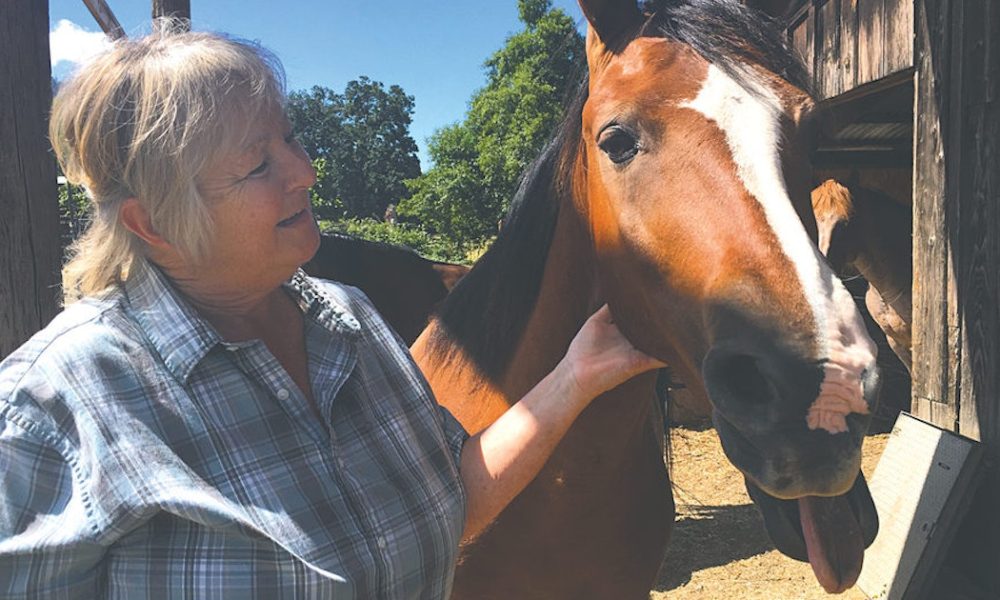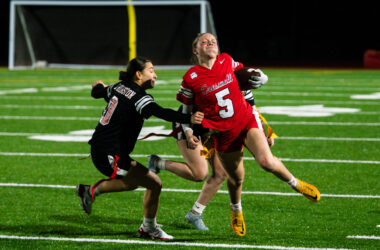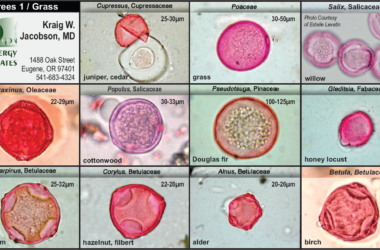 MAGGIE ROTHAUGE WITH ON OF HER WILD HORSES. Aliya Hall/The Creswell Chronicle
MAGGIE ROTHAUGE WITH ON OF HER WILD HORSES. Aliya Hall/The Creswell Chronicle
When Creswell’s Maggie Rothauge made the first trip over to Burns, Ore., in 2010 with her husband Farrel Rothauge to witness a Bureau of Land Management (BLM) mustang adoption, they first took a trip to the Steens to see the wild horses in person.
”We got up on that hillside and the snow was spitting, and the horses – not a lot of them – they were around us and I had my camera going. It was very exciting,” she said. ”We never made it back to the adoption center and went up the next day.”
Since then, there was a time when they went over to the Steens every six weeks to stay for four days and photograph the horses. Now, Maggie’s photos can be seen at the University of Oregon campus in The Museum of Natural and Cultural History, and the couple has been featured on Oregon Field Guide for their work with BLM. They also know nearly every horse by its nickname.
Maggie said she married into a family of mustang people, her husband had been working with mustangs for over 40 years; although at the time he had never been out in the wild with them. She said he was the one that got her interested, however, even as a girl she had a dream of wanting to be in the middle of a herd of horses. They now own six wild horses for their own herd; five come from the south Steens and one from the Stinkingwater herd.
For them, the importance of the wild horses is the connection between horse and human. Coming from the first moment a horse trusted a human to ride on its back.
”The automobile made the horse obsolete to most people, but for some of us, to look into the eyes of the horse, we see the reflection of ourselves,” Farrel wrote in a message. ”At the same time it is as if we can peer deeper into the horse, into it’s soul – or maybe it is the horse that is peering deep into the soul of us.
”And even more so, the Wild Horse: mankind’s discarded partner,” he went on. ”Who will fight to the death to defend what is his. Who stand so majestically on the horizon in the glow of a fiery sunset, and will also defend us, when they have helped to teach us patience and trust. When they view us as one of them.”
Since the 1970s, there has been a controversy over the future of wild horses. Due to overpopulation and a lack of resources, the welfare of these horses are at risk. BLM has been promoting adoption efforts, and trying to manage populations. BLM was working with Oregon State University to conduct sterilization experiments, as one way to prevent overpopulation and a fight for resources; however, on Nov. 5 the experiment was blocked by U.S. District Judge Michael Mosman after wild horse activists fought against it. Activists hold the mission to keep wild horses free to reign, and are against federal government intervention.
Maggie and her husband said that they are both for the spaying of wild horses. Farrel said that the birth control doesn’t work because the mustangs can till smell the mares ovulating, and it leads to stress. Instead he suggests letting the mares have three to four foals to get their DNA on the ground before spaying.
”When we end up with 900 to 1,400 horses in the winter,” he said, ”they’re pushed down to lower (elevations) and there’s no food.”
Maggie agreed that there needs to be a different strategy, and supported the idea for more studies and research.
”There are beautiful, wonderful things up there, and then there are horrible heart-wrenching things,” she said. ”When it first started happening I was a bawl baby, but going along I realized I had to buck-up. You got to realize that you have close to a thousand horses up there, and realize like any farm or ranch, animals are going to die.”
The Rothauges said they help the BLM however they can, which lately has involved promoting the horses through their photographs on Facebook to get horses adopted. In the past, Maggie was active in wild horse groups trying to educate activists on her experience working with the horses, but eventually she stopped due to arguments where no one won.
”That’s the way we’re trying to help now,” she said of sharing her photography, ”instead of arguing.”







